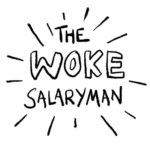Advertisement
Anonymous
What are the advantages of using robo-advisors to DCA into the US ETF, instead of doing it myself via TD Ameritrade since it has $0 commission?
Planning to DCA around $300/mth into US ETFs as a newbie investor. Was planning to go ahead with Stashaway at first, until I realised that TD has no fees for buying & selling. Just USD$25 for withdrawal (but I don't think I'd do that often). And also the long account opening period.
Am I missing anything (e.g. conversion rates) or are there any reasons why I should consider roboadvisors for US ETFs, instead of just using TD? Please share, thank you! :)
8
Discussion (8)
Learn how to style your text
Reply
Save
I think everyone else answered the pros and cons in terms of the investment fundamentals and underlying assets (the 'hard' part) perfectly for both platforms.
I would like to address the 'soft' side of things for your comparison.
The idea of DCA strategy is to have a strict investment program where you invest your money regularly into an asset of choice, and you do it without considering any other factors (time, price, etc..). Hence, no emotions involved when setting aside this sum of money for regular investments.
While robos allows you to engage in an automatic investment plan, TD does not have such a feature for ETFs. If you are considering TD for DCA into the US ETFs, having the discretion as to when you could put in this regular sum of money could potentially disrupt your DCA plan.
Firstly, you'd have to log in and make the purchase with $300/month WITHOUT FAIL, every month, to make a successful DCA strategy.
Secondly, it is only human nature that when you decided to put in the $300 every month, you'd want to time the market, by buying at the low. The whole investor's emotions will kick in if you are allowed to have this kind of discretion (unless, if you have great sense of discipline).
Strictly for DCA purpose, and to make sure such a strategy works, I feel robos would be better for a start!
Good luck!
PS: There are other platforms that offers automatic investment for ETFs. Since the comparison was between robos and TD (being 0 fees), I did not consider those other options.
Reply
Save
Just want to share some of my own experience. I'm doing weekly DCA in Syfe Equity 100 and also DIY some ETFs on my own.
When I buy the ETFs, I want to buy in at the lower/lowest price possible. That becomes a psychological play when you DIY. Which day of the month do I buy in, what price do I buy in. If it drops today, should I buy in today or wait for tomorrow to drop further and buy in? If you DIY and especially when you are new to investing, discover yourself in the process and decide if DCA as a disciplined approach or DIY suits you better.
Reply
Save
I struggled with a similar question myself - Robo or DIY but considering that my monthly investable income is quite similar to yours, it wasn't 'worth it' for me to DCA into DIY stocks since the transaction fees will eat into my returns. My alternative was to wait for a few months then DCA quarterly or twice yearly. I just didn't want to wait for that time because anytime cash is idle in my account, I might spend it unknowingly so this is just to help with my psychology to DCA into robo monthly until I have a significant sum then I will withdraw some for DIY stocks. I also didn't want to miss out on opportunities by just DCA-ing quarterly or twice yearly so I rather do it with robo for now. Investing is a journey so feel free to switch up your strategies after doing your due diligence every 6 months to a year, it doesn't have to robo or DIY stocks forever, it can be a mix depending on the circumstances at each point of your life and your investable income! Have a great investing journey OP! :)
Reply
Save
Colin Lim
18 Feb 2021
Financial Services Consultant at Colin Lim
What is the reason for using TD? U want to buy ETFs on TD?
Robos allow u to buy fractional shares l...
Read 4 other comments with a Seedly account
You will also enjoy exclusive benefits and get access to members only features.
Sign up or login with an email here
Write your thoughts
Related Articles
Related Posts
Related Products

StashAway
4.7
1295 Reviews
StashAway Simple Guaranteed 3.55% p.a. (Guaranteed rate)
Cash Management
INSTRUMENTS
None
ANNUAL MANAGEMENT FEE
None
MINIMUM INVESTMENT
3.5%
EXPECTED ANNUAL RETURN
Mobile App
PLATFORMS

Syfe
4.6
934 Reviews

TD Ameritrade
3.6
33 Reviews
Related Posts
Advertisement












For DIY ETFs investing, the fees would be lower in the long term since you won’t be paying the management fees to the robo advisor.
But you will have to spend your own time researching to construct the portfolio, managing and keep tracking of your investments and doing your own rebalancing. If you only invest in e.g. one ETF (IVV or VOO), you might try to time the market to catch the lowest price in the month.
With robo advisor, you are paying for the convenience and expertise for a well-diversified portfolio.